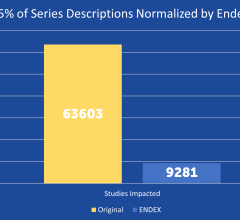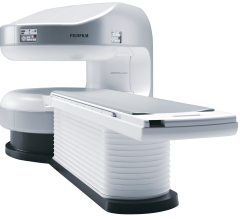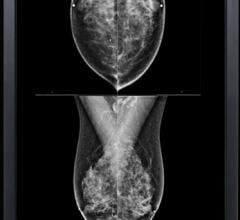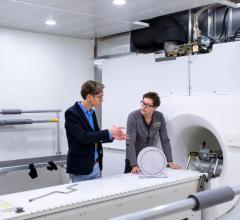The U.S. healthcare industry was rocketed into the 21st century with the passage of the Patient Protection and Affordable Care Act (ACA) in 2010. The legislation and its focus on reducing healthcare costs while expanding insurance coverage has generated a great deal of controversy in the four years since, and an expert panel in a special session at the 2014 Radiological Society of North America (RSNA) meeting warned radiologists to brace themselves for more changes in 2015.
Having been active in the age of transformation which manufacturing, retail, finance, high-tech, oil and gas all experienced in the late 1980s and into the 1990s, I realized that healthcare would have its date with enterprise-wide change. Healthcare as an industry has existed for too long in an environment of stasis. Now with the rapid pace of technology, competition and exorbitant costs, it is evident to the patient, the competition, the government and the rest of the world that it must adapt to survive. Medical imaging is a profit center for most healthcare providers and has historically been the hotbed for technology advancement and innovation.
A new era of telehealth has arrived. According to HIMSS Analytics 3rd Annual Mobile Survey, 83 percent of physicians use mobile technology to provide care. Because doctors are so mobile, patient information has to be mobile as well. The goal of telehealth is to eliminate geographic constraints and deliver quality patient care at any time, in any location.1 Many healthcare providers have shown an increasing interest in telehealth because of the benefits it can provide, among them, greater access to patient data and images, lower costs and higher quality of care. Offerings of telehealth include consumer online access to providers for diagnosis and treatment of common ailments, real-time video-based virtual consults between providers and patients, in-home monitoring of chronically ill patients, and primary care physicians’ access to specialists for consultation and diagnosis.
Fujifilm’s APERTO Lucent is a 0.4T mid-field, open MRI system addressing today’s capability and image quality needs ...
Imaging is pivotal for detection, staging and evaluation of tumor response to treatment. It is instrumental in determining which treatment is best suited to a patient and may be used to help guide surgery and radiation therapy. With chemotherapy, follow-up imaging exams are used to track tumor response and determine if different drugs should be used.
Angiographic imaging system vendors have developed several new technologies to address emerging cath lab trends, including the need to reduce radiation dose, improve image quality and enable advanced procedural image guidance. All three of these points have become increasingly important as more complex procedures are attempted in interventional labs and hybrid ORs. These procedures include embolic coiling, neuro-interventions, thrombectomy, aortic repair, transcatheter aortic valve replacement (TAVR), mitral clip valve repairs, left atrial appendage (LAA) occlusions, atrial and ventricular septal defect closures, and new interventions for both electrophysiology (EP) and heart failure.

SPONSORED CONTENT — Fujifilm’s latest CT technology brings exceptional image quality to a compact and user- and patient ...
The future of ultrasound looks auspicious, according to Jonathan M. Rubin, M.D., Ph.D., director of the division of ultrasound in the department of radiology at the University of Michigan in Ann Arbor, who presented on “The Future of Ultrasound” at the 2014 Radiological Society of North America (RSNA) conference in Chicago this past December. His lecture highlighted emerging techniques for volume blood flow and shear wave imaging.
SPONSORED CONTENT — Fujifilm’s latest CT technology brings exceptional image quality to a compact and user- and patient ...
The exhibit floor at RSNA 2014 reflected a new era of austerity, one in which efficiency and effectiveness ruled. From South to North halls — Toshiba America to Siemens, Hologic to Samsung — new products and works in progress were distinguished by how they improved the lot of medical imaging among the various “ologies”.
The Radiological Society of North America (RSNA) 2014 meeting in December showcased many new digital radiography (DR) products. In today’s fairly stagnant economy, medical facilities are looking for ways to do more with what they already have, and stretch their budgets. In searching for new DR systems, cost-effectiveness, ease of use and flexibility top their list. Many vendors debuted solutions to meet this demand.
With more than 60 years of experience in the field of radiology, Zwanger-Pesiri is one of the largest non-hospital based radiology practices in the United States today. Its staff of 60 radiologists comprises a number of specialties including vascular imaging, interventional radiology, neuroradiology, musculoskeletal imaging, abdominal radiology, cardiovascular radiology and breast imaging.
SPONSORED CONTENT — EnsightTM 2.0 is the newest version of Enlitic’s data standardization software framework. Ensight is ...
ITN relies on its readers for input as to what trends and topics you are interested in and are affecting your business. We continuously monitor what the audience is viewing online at itnonline.com, and also through social media channels. This year, topics on women’s health and dose monitoring dominated the list.
Mevion Medical Systems is announcing that the Mevion S250 proton therapy system at the Stephenson Cancer Center at the University of Oklahoma has completed its rigorous acceptance testing and is now entering the clinical commissioning phase. Clinical commissioning is the final step before physicians begin treating patients with the system.
A University of California-Davis study found that half of primary care physicians are still unfamiliar with a controversial state law mandating that radiologists tell women if they have dense breast tissue.
Did you know that approximately one-third of all the data in world is created by the healthcare industry and that ...
The 2014 Best in KLAS report ranks healthcare vendors and their solutions by the professionals who use them—healthcare providers.
Fujifilm SonoSite, Inc. and The Floating Doctors, a nonprofit organization dedicated to promoting improvements in healthcare delivery worldwide, announced the release of the first video in a series titled “Bridging the Gap.”

SPONSORED CONTENT — EnsightTM 2.0 is the newest version of Enlitic’s data standardization software framework. Ensight is ...
VuComp Inc. announced that two additional patents have been issued to the company, extending its intellectual property related to computer-aided detection of breast cancer.
Elekta announced its latest research and development initiatives, with special focus on Atlantic, a high field MRI-guided radiation therapy system.
The silence is deafening. And since radiology associations, physician groups and vendors have yet to publicly respond to the elephant in the room, I offer the following in hopes we can get the conversation started...
Death rates from lung cancer will exceed those for breast cancer for the first time among European women in 2015, according to the latest predictions published in the cancer journal Annals of Oncology.
Seven leading healthcare providers were selected as recipients of 2014 Putting Patients First grants and now, using these grants, can create or expand education and training to improve the patient experience and safety in diagnostic imaging.
A team of Johns Hopkins specialists, using a battery of imaging and cognitive tests, has gathered evidence of accumulated brain damage that could be linked to specific memory deficits in former National Football League (NFL) players experienced decades after they stopped playing the game. Results were published in the February 2015 issue of the journal Neurobiology of Disease.


 January 30, 2015
January 30, 2015 














